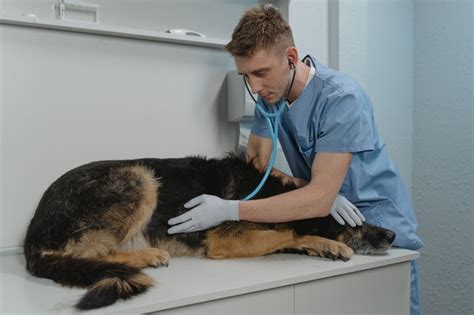Veterinary medicine is a rewarding and challenging field that allows you to make a difference in the lives of animals and their owners. However, getting into vet school is highly competitive. In the United States, there are only 30 accredited veterinary colleges, and they receive thousands of applications each year.

Admissions Requirements
To be eligible for admission to vet school, you must have a bachelor’s degree from an accredited college or university. You must also have completed the following coursework:
- Biology
- Chemistry
- Physics
- Mathematics
- English
In addition to your academic record, you will also need to submit letters of recommendation, a personal statement, and a resume. You may also be required to take the Veterinary College Admission Test (VCAT).
The VCAT
The VCAT is a standardized test that is used to assess your knowledge of the sciences and your problem-solving skills. The test is three hours long and consists of 200 multiple-choice questions. The VCAT is scored on a scale of 1 to 100, and the average score is 50.
Acceptance Rates
The acceptance rate for vet school varies from year to year. In 2021, the average acceptance rate was 12%. This means that for every 100 people who applied to vet school, only 12 were accepted.
How to Increase Your Chances of Admission
There are a number of things you can do to increase your chances of getting into vet school.
1. Get good grades
Your GPA is one of the most important factors in the admissions process. Aim to get a GPA of 3.5 or higher in your science courses.
2. Take the VCAT early
The VCAT is a challenging test, but it is important to take it early so that you have time to retake it if necessary. Aim to take the VCAT by the end of your junior year of college.
3. Get involved in extracurricular activities
Extracurricular activities show that you are well-rounded and have leadership skills. Get involved in activities that are related to veterinary medicine, such as volunteering at a animal shelter or working at a veterinary clinic.
4. Write a strong personal statement
Your personal statement is your chance to tell the admissions committee why you want to be a veterinarian. Be sure to write a clear and concise statement that highlights your strengths and experiences.
5. Get letters of recommendation from strong sources
Your letters of recommendation should come from people who know you well and can attest to your academic abilities and your character. Ask your professors, advisors, and employers to write letters of recommendation for you.
6. Network with veterinarians
Get to know veterinarians in your community and ask them for advice. They can provide you with valuable insights into the veterinary profession and help you prepare for vet school.
Benefits of Veterinary Medicine
Veterinary medicine is a challenging but rewarding profession. Here are just a few of the benefits:
-
You will help animals improve their health and well-being.
-
You will treat a variety of animals, from dogs and cats to horses and farm animals.
-
You will use your knowledge and skills to make a difference in the world of animal health.
